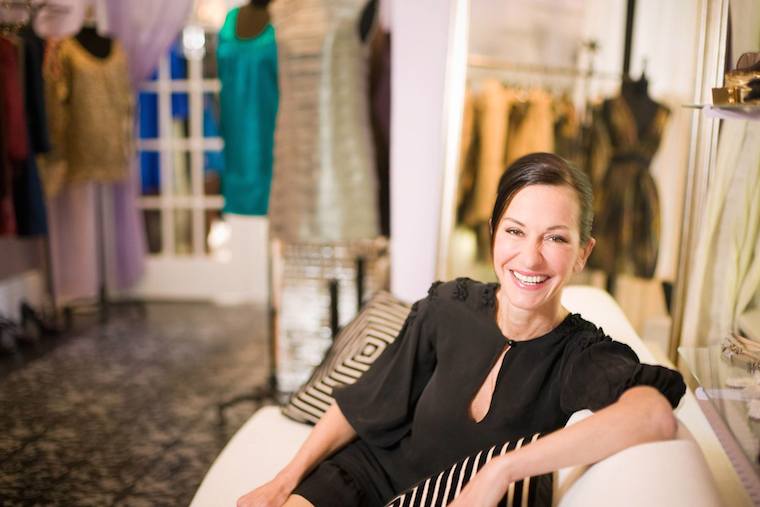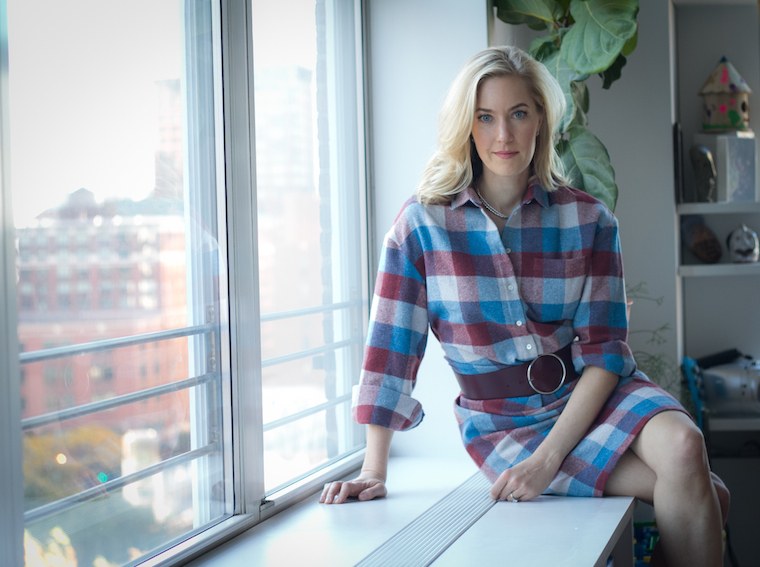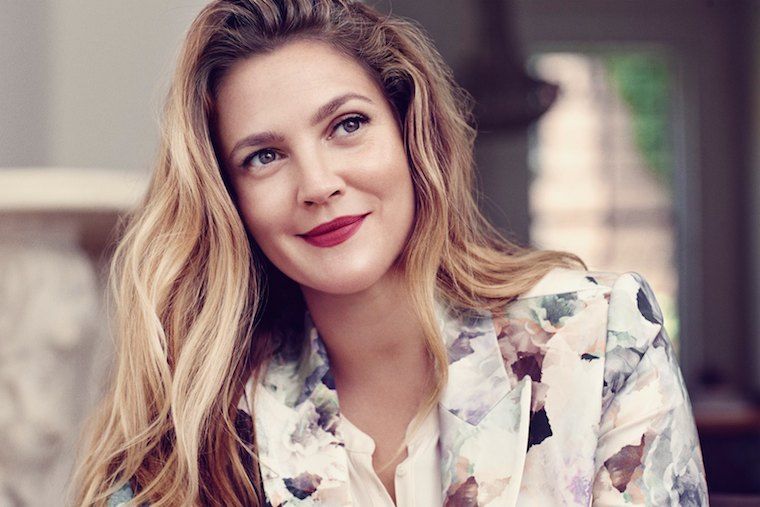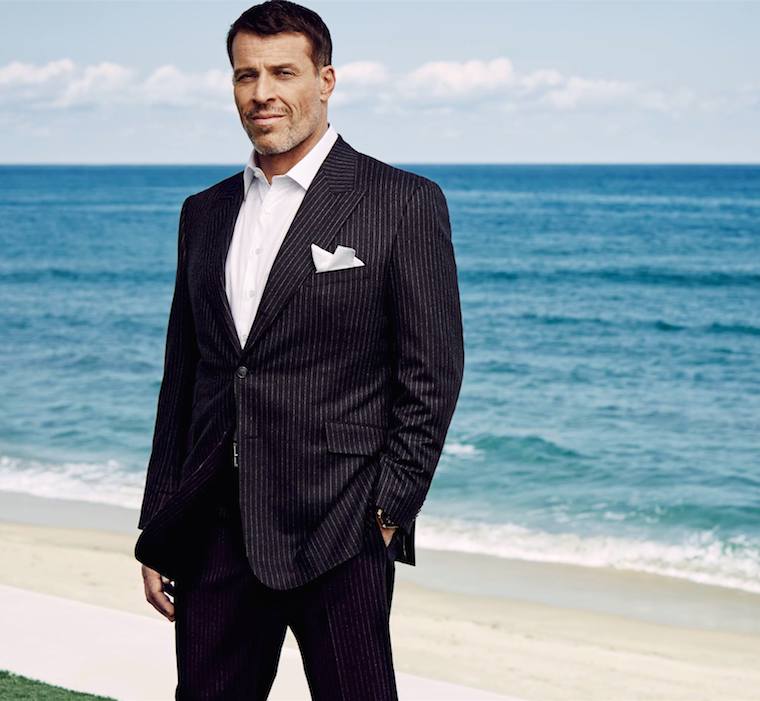How to Become a “Financial Grownup,” According to Drew Barrymore
Most milestones of adulthood are pretty rad. Remember the thrill of getting your own apartment, going on your first solo trip, and finally scoring a job that pays a daily-green-juice salary?
But financial firsts, like setting up a retirement fund and coming up with a plan for tackling student loan debt, aren’t quite so exciting. In fact, they can be downright scary—and the stress of dealing with them (or not) could actually be detrimental to your health. (For instance, one in four Americans have PTSD-like symptoms linked to money stress.)
 To help turn this widespread fear into empowerment, Reuters personal finance columnist and TV anchor Bobbi Rebell penned How to Be a Financial Grownup—a new compilation of advice and personal stories from celebrities, business leaders, and money pros, all sharing the a-ha moments that led them to take charge of their cash flow.
To help turn this widespread fear into empowerment, Reuters personal finance columnist and TV anchor Bobbi Rebell penned How to Be a Financial Grownup—a new compilation of advice and personal stories from celebrities, business leaders, and money pros, all sharing the a-ha moments that led them to take charge of their cash flow.
Monetary maturity has nothing to do with age, says Rebell. “A financial grownup is making deliberate decisions about their financial health,” she explains. “They may have debt, and they may not be making as much money as they want, but they are fully tuned in to what is going on with their finances and are taking the best steps they can to create a path to financial wellness.”
Although the book's contributors come from all sorts of upbringings and industries, from Drew Barrymore to Tony Robbins, one common thread runs through their stories: Financial security’s not a given, even if you make serious bank.
“[Everyone] shared unexpected events that changed their perceptions of—and their attitudes towards—money,” says Rebell. “Many were caught in situations they never thought they would be in—things that happen ‘to other people’—or were forced to be honest with themselves about their financial situation. We all want a ‘grownup’ to take care of us for as long as possible—it’s so much easier! But life doesn’t work that way.”
"We all want a ‘grownup’ to take care of us for as long as possible—it’s so much easier! But life doesn’t work that way.”
Rebell hopes your bank account won’t be the only thing that’s healthier after reading these honest, unedited stories, a few of which are excerpted below. “The stress caused by financial anxiety can cause tremendous physical issues,” she points out. “There's a reason I talk about things like organization, relationships, healthy eating, and even meditation. It is all connected. Financial wellness is an essential part of being happy and healthy.”

{{post.sponsorText}}
Keep reading for real talk from famous financial grownups, including Barrymore, Cynthia Rowley, Well+Good's co-founder Alexia Brue, and more.

Cynthia Rowley, fashion designer
When I was 21 and a student at the Art Institute of Chicago, a woman stopped me on the L train and asked me whose jacket I was wearing. “It’s mine,” I said, “I’m a designer.”
It turned out she was a buyer for a department store, and she asked me to come to her office first thing Monday with my collection.
So I sewed like a maniac all weekend and made five pieces and brought it to her office.
The buyer looked at the first piece and said, “What’s the style number on this?”
Deer in the headlights moment. “Uh, one?!”
“Okay, what’s the style number on that one?”
“Um, two?”
She looked skeptical and said, “Where else do you sell?”
There’s no “right” way to be an entrepreneur. You have to have a vision of where you want to go, follow your gut, and take risks every day.
“Some of the more upscale mostly European...mumble mumble...boutiques...on Oak Street...” Throat clear. “Okay, I confess, I’ve never done this before but if you give me the order I promise I’ll deliver a beautiful collection and you won’t be disappointed.” (AKA fake it till you make it.)
I didn’t realize I was supposed to ship to the warehouse and showed up at her office six weeks later—with the garments in a competitor’s shopping bag. D’oh! But the collection sold out.
That was how I became a designer. I moved to New York, rented a loft, and a few months later held a show. The business went from that first department store sale of women’s wear to an international brand with 60 stores worldwide, and lines of shoes, handbags, surf and swimwear, fitness, eyewear, legwear, cosmetics, fragrance, and home furnishings.
Lots of people encouraged me along the way. But I never looked for somebody to take me under their wing. There’s no “right” way to be an entrepreneur. You have to have a vision of where you want to go, short-term and long-term, follow your gut, and take risks every day. It helps to be a pathological optimist and say yes to everything.
The smartest thing I ever did was focus on the thing that most inspires and energizes me, and makes me excited to come to work every day. And no matter what the reviews are, never lose sight of the bottom line.

Alexia Brue, co-founder and publisher of Well+Good
I was diagnosed with cancer in college. Hodgkin’s disease. I had chemotherapy. Usually you deal with your mortality later in life, so it was a real wake-up call that I couldn't take good health for granted. Staying on top of my health has always been front and center in my life for the last 20 years and Well+Good, in many ways, is an extension of that.
I once read a quote from a very popular female celebrity. She said working out every day was self-indulgent—I think she had that wrong. You can do all the right financial planning in life, but if you don’t take care of yourself, it can cost you everything you've worked so hard to achieve.
Just think—a $1,500 bag translates into 30 boutique fitness classes and 40 green juices.
It is about trade-offs. With personal finances, there is no way to have it all. You constantly have to prioritize and plan for what’s important to you. You can’t splurge without saving somewhere else. Actually the Well+Good community employs this principle all the time.
Luxury wellness experiences, such as $35 fitness classes and $10 green juices, are expensive, to be sure. We’ve seen a lot of our readers reallocate the way they spend their money. For example, people used to care more about the season’s it-bag or a pair of incredible shoes. Now, we see a lot of millennial women saying to hell with the bag of the season; they’d rather do the workouts they love and splurge on smoothies and green juices.
They’ve made a conscious trade-off in deciding that these daily experiences mean more to them than a bag. Just think—a $1,500 bag translates into 30 boutique fitness classes and 40 green juices. I can’t remember the last time I bought a pricey bag. Instead I’ve turned my yearly bag splurge into my fitness fund.

Drew Barrymore, actress and entrepreneur
My financial grownup moment was being told by Steven Spielberg to turn down money. This was after E.T., and I was getting all kinds of endorsement offers. And for many years afterwards it was very difficult, because I would have liked to have that money and maybe even needed that money very much.
When you have the intention of wanting to strike it rich, something might possibly go awry.
But in the end it paid off because I was able to learn about integrity and that working for your money is not only key and crucial, but if you haven’t spread yourself too thin, you probably will have better opportunities later. Even if they are the ones only created from yourself, you won’t have confused everyone along the way.
I think that when you have the intention of wanting to strike it rich, something might possibly go awry. [But] if you pour your heart into something and you know that one day you might have enough to support yourself, that is literally the energy that has to go into building whatever it is you are trying to build.

Tony Robbins, author and entrepreneur
[When I was a child] we had no money for food at Thanksgiving. That will kind of wake you up. But what it woke me up to was not only that I wanted to do well financially so my future family would not suffer the way we did. Somebody fed my family. So it also, at the same time, made me incredibly grateful, and it made me believe that strangers care.
It wasn’t about the food, it was about the fact that somebody cared.
And I swore that I would do that for somebody else, so when I was 17 I fed 2 families. The next year, 4. And as years went by, I did hundreds of thousands. And in the last 7 years, it’s been 2 million people through my foundation. And then I fed 2 million, so that is 4 million total. And then with this book I just did, Money: Master the Game, we are feeding 100 million people. I am feeding 50 million people myself through Feeding America and then I’m doing matching funds to reach 100 million people.
So you can be imprinted by some of the earliest things in your life.
I would say the most important thing is stop being a consumer. Become an owner.
I would say the most important thing is stop being a consumer. Become an owner. You know you have to. You might say: I don’t have time to invest, I don’t know what investing is. It seems so complex. But if you don’t study just a couple of basic things and really learn to own the companies, not just buy from these companies, then you are always going to struggle financially.
You can move from being the chess piece to the chess player, and there are a few distinctions you really need to know. And that is what I have really worked on sharing with people.
If you want to clean up your finances, one expert recommends going on a money detox—here's how it works. Or you could simply start by decluttering your home, which for one Well+Good writer freed up $10,000.
Loading More Posts...